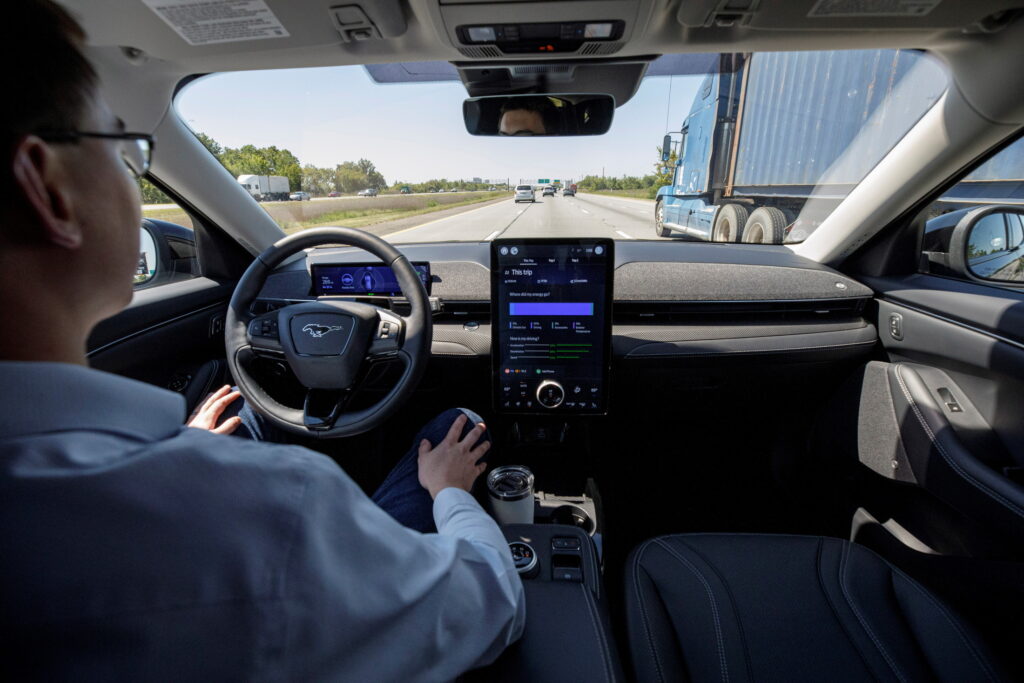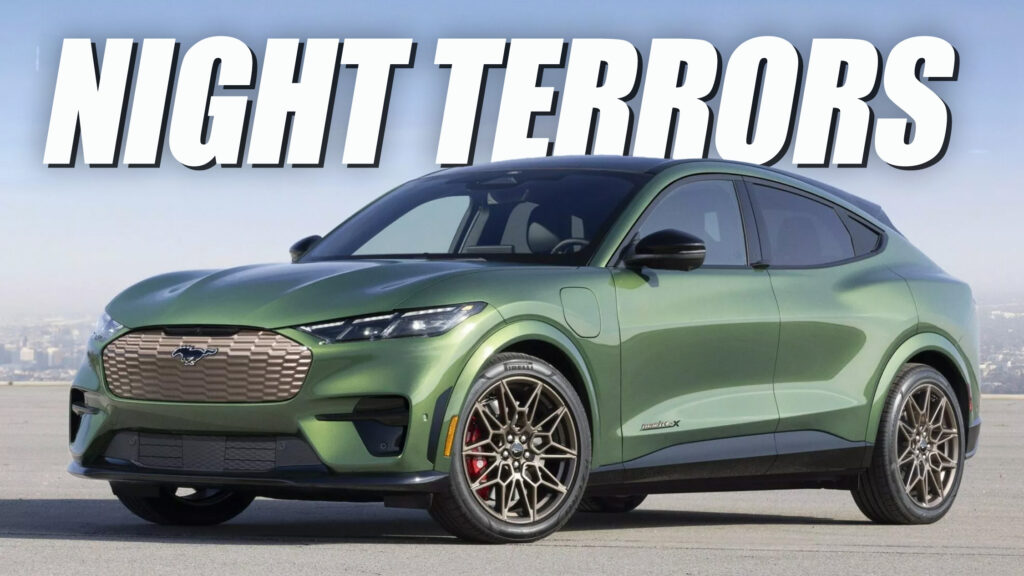- NHTSA opens preliminary probe into Ford’s BlueCruise hands-free driving system
- Safety regulator says it has heard of two fatal crashes potentially related to BlueCruise
- BlueCruise recently received a “poor” rating in a test by the Insurance Institute for Highway Safety (IIHS)
U.S. safety regulators have kicked off a preliminary investigation into Ford’s BlueCruise semi-autonomous, hands-free driver assistance system after learning of two fatal crashes potentially related to the tech.
The probe is being launched by the National Highway Traffic Safety Administration’s Office of Defects Investigation (ODI), who will evaluate whether a more widespread investigation into BlueCruise is needed, and whether a recall to modify the system to improve safety should be announced.
Related: Feds Investigate Ford BlueCruise’s Role In Deadly Mustang Mach-E Crash
The two incidents that have alarmed the NHTSA both involved Mustang Mach-E crossovers colliding at night with stationary cars in their lanes. In each case there was one fatality, and an initial investigation carried out by the ODI in March confirmed that BlueCruise was operating in both vehicles right before they crashed.
Unlike ordinary Level 2 driver assistance systems, BlueCruise lets the driver take their hands off the wheel for extended periods, provided they are watching the road at all times – something an in-car camera system verifies. But the tech, which is designed to take the stress out of long-distance travel, is only available on certain roads, and can’t be used in typical urban areas.
The ODI’s investigation will make a preliminary test of BlueCruise’s ability to respond to the road environment and also the functionality of the driver monitoring portion of the system. Though BlueCruise is available on multiple Ford and Lincoln models, ODI documents suggest that the probe will only focus on 2021-24 Mach-Es, around 130,050 of which are estimated to be affected.

BlueCruise is Ford’s flagship driver assistance tech but it left assessors from the Insurance Institute for Highway Safety (IIHS) unimpressed when they pitted it against 14 similar ADAS offerings from different carmakers recently. BlueCruise received a “poor” rating, as did 10 other systems, including Tesla’s Autopilot and the same company’s more expensive Full Self Driving option.
“Some drivers may feel that partial automation makes long drives easier, but there is little evidence it makes driving safer,” IIHS President David Harkey said at the time.
Last week the NHTSA announced it was opening an investigation into Tesla’s recall of 2 million cars to improve the safety of its Autopilot feature. Multiple accidents have been reported involving Teslas that have supposedly received the recall software update.




